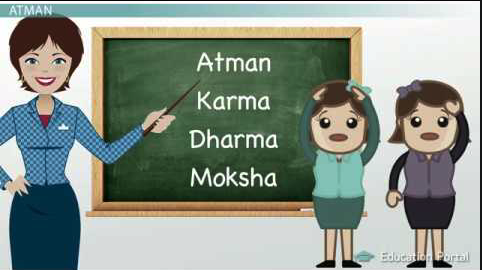Simple answers to your questions on Hinduism are provided here.
Use the search button (top right on desktop, top left on smartphones) to find specific topics of interest. At the bottom of each answer, check the “Tags” section for related topics. To learn more about this Q&A project, click [here].

On Hinduism
You can also download an earlier collection: 300QAs on Hinduism (PDF). Thank you.

05. Traditions
Most Hindus belong to one of four major deity traditions (denominations)—Shaiva, Shakta, Vaishnava, and Smarta. The central deity worshipped and certain philosophical tenets differ. All denominations, however, share many core beliefs such as maya, karma, and moksha. All uphold the validity of Vedas. Shaivas primarily worship different forms of Lord Shiva; Shaktas worship Shakti, or the Divine Mother in Her various forms; Vaishnavas worship forms of Lord Vishnu; and Smartas worship different forms of six major deities, including Lord Shiva, Shakti, Lord Vishnu, Lord Ganesha, Lord Subramanya and Lord Surya, holding them all to be forms of Brahman, the eternal, infinite, unchanging principle that is the substratum of the universe and is both immanent and transcendent.
.Other reading material: https://houseoflac.wordpress.com/2018/04/10/worship-in-sanatan-dharma/
Relevant videos
Contributor: Dharmi Sarkar
Location of this post (5a): https://www.hinduspeakers.org/ufaqs/what-are-four-deity-traditions/
The basic tenets of Hinduism that all Hindus believe in are the concepts of:
- Dharma: Dharma is laws and order by which this universe is sustained. Dharma is the mode of conduct for an individual that is most conducive to spiritual advancement.
- Karma: We are responsible for our actions. Sometimes, we might not understand the events of life, but they are the sum total of our karma over multiple lifetimes. However, our past karma only decides some situations in life (prarabdha), we still have control over our karma in this lifetime, and all our life in this lifetime is not predestined.
- Atman/Soul: meaning that there is a light within each living being and that we are beyond our physical bodies. The Atman cannot be killed or destroyed, only the physical body can be destroyed.
- Kaal chakra (Samsara, Wheel of life): meaning that there is a continuous cycle of birth, death and rebirth.
- Moksha: That it is possible for human beings to realize their true nature and be one with their soul while in their physical body. Once the self realization happens, then one is said to attain moksha, and become free from the cycle of birth and death.
Other reading material:
Relevant videos:
Contributor: Swati Sugandhi
URL link of this page (5b): https://www.hinduspeakers.org/ufaqs/what-are-basic-tenets-of-hinduism/
